The Unrelenting Push to Privatize Public Education
A Sneak Peek of the ‘22 Legislative Session, Part 2
Sherri Brown — OKPLAC Legislative Chair
You know the story. A tiny little mouse wears out an energetic boy by making more and more demands. First, he just wants a cookie. What could ever be wrong with that? But if you give him that cookie, you’d better be prepared to give him more and more. By the time you finish granting all of this very persistent mouse’s requests, you are left with a huge mess.
And so it goes with the story of privatization of our public schools in Oklahoma. If you give a privatizer a cookie, you can bet they will want more.
When the OK Equal Opportunity Scholarship Act passed in 2011, a limit of $3.5 million in tax credits could be given for donations to for scholarships to private schools, and $1.5 million in tax credits for grants to public schools. Last session, after four years of failing to expand the tax credit caps, legislators finally gave the privatizers what they wanted and increased the cap to $25 million for private school scholarships and $25 million for public school grants. Now $50 million in taxes owed to the state could be removed from general revenue that could fund not only public schools through the formula, but all kinds of state services on which citizens rely. It took a lot of shenanigans, ultimately being thrown into budget negotiations for an up or down vote of the entire budget. Now that they have gotten their cookie, are they satisfied, or do they still want more?
Of course they want more! Some legislators have turned their attention back to the failed efforts of 2014, 2015 and 2016 to pass a voucher-for-all scheme, Educational Savings Accounts. Senate ProTemp Greg Treat has filed SB1647 with a new name, the OK Empowerment Act, which would establish “Empowerment Accounts” for any family to use, regardless of income, on a plethora of educational products and services with little accountability. Basically, this is an EPIC Learning Fund for everyone, unless you are enrolled in a public school. Funds would come directly out of the allocations made to public schools. Senator Treat also filed SB1583 which would give families a “transfer allowance” to a private school if they live in an attendance area of a school who has an “F” on their state report card.
Rep. Ryan Martinez has filed HB3482 creating the Digital Wallet Program Act. Governor Stitt initiated the “Bridge the Gap Digital Wallet” program in 2020 using $8 million of Covid relief money to provide Oklahoma families with funds to purchase technology, materials or supplies. HB3482 appears to make this a permanent program, still under the control of the Governor or his designee. Previously, the designee was a company called Class Wallet, a financial technology company out of Miami, Florida. As you might guess, demographic information about who was served by this program and the ways in which it was used is not accessible since this is a private corporation, even though the funds they managed were public.
In addition to these privatization bills, Senator Rob Standridge has filed four different voucher bills designed to provide “relief” from four different kinds of grievances to be eligible for a voucher to a private school: SB1270, SB1172, SB1170, SB1135. Senator Nathan Dahm has also filed SB1420, the “Fund Students, Not Systems” bill. Are you worn out yet? There’s more!
When the Lindsey Nicole Henry Scholarship for Children with Disabilities was passed in 2010, it targeted a narrow population of children that would be eligible: those with an IEP, who had previously been served in the public school. Since then, amendments have passed that remove the prior year requirement if a dependent of an active military service, adds eligibility for children in DHS custody or placed with the Office of Juvenile Affairs and a child provided services through Sooner Start. The program has grown from 53 its first year to 1,070 in FY21, diverting $7.3 million that year. Since its inception, over $38 million has been diverted from public schools to private schools through LNH Scholarships. Now, this session, HB3052 by Representative Toni Hasenbeck and SB1162 by Senator Jake Merrick, would add eligibility of children who have a Section 504 plan. A 504 plan is generally used to provide support systems for a disability that might not require an IEP such as ADHD, visual or hearing impairment, diabetes or other medical condition. This is likely to be a very large number of children who would become eligible for these scholarships.
The end goal of this national, organized and well-funded push for market-based “reforms” is to totally defund and dismantle the public school system. Because there is a lot of money to be made from the education sector, there is a lot of big money from national groups working for these kinds of bills. They are counting on wearing us out with this constant, year-after-year push to dismantle our schools! They underestimate our resolve! No More Cookies!
Public schools are the heart of our communities. They choose ALL children, no matter their color, their ethnic background, their religion or sexual orientation, no matter their economic resources or lack of resources, no matter the ability or disability or their proficiency in English. It is in our public schools where children learn to accept and appreciate those that are different from them. Private schools choose the kids they want to serve. Their exclusionary admission policies often result in segregated, homogenous communities. All public schools provide transportation and meal services, services for children with disabilities, with emotional problems and the homeless. Private schools do not typically accept students that need these extra services and supports.
“Choice” doesn’t have to mean privatization. OKPLAC want parents to have a myriad of choices for their children with their local public school district, no matter the zip code. Public schools provide a wide variety of academic choices with access to foreign language classes, arts and humanities classes, magnet schools or theme schools, vo-tech programs, Advanced Placement, apprenticeships, mentorships, internships and concurrent enrollment. Some public schools already have 100% virtual education programs or hybrid virtual and in-person learning opportunities as well as alternative education settings that ensure students graduate (unlike our existing virtual charters). Special education services provide school psychologists, occupational and physical therapists, speech and language therapists, mental health and behavioral specialists and even medical services so that even our most challenged medically fragile and multi-handicapped children can learn and grow. Choices abound in a variety of sports programs that keep kids in school and bring the whole community together. And many districts are implementing a Community Schools model where the school is the hub for wrap-around services so critical to families.
Choice doesn’t have to mean privatization, but it does require adequate and equitable funding. Together, public-school advocates can defeat these privatization schemes. Together, we can demand our leaders focus their energies and resources on providing high-quality public schools that offer broad choices so that every child can find his or her best fit within the neighborhood public school, no matter their zip code.
To join us in advocating for policy that supports strong, innovative public schools for ALL children, sign up to receive our Advocacy Alerts.



